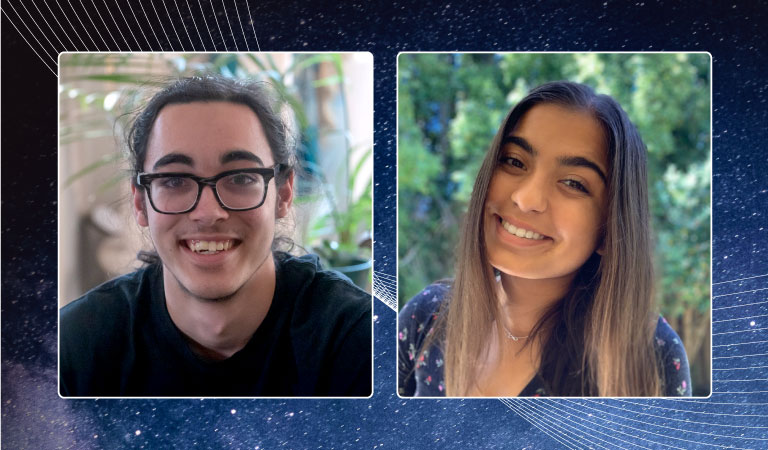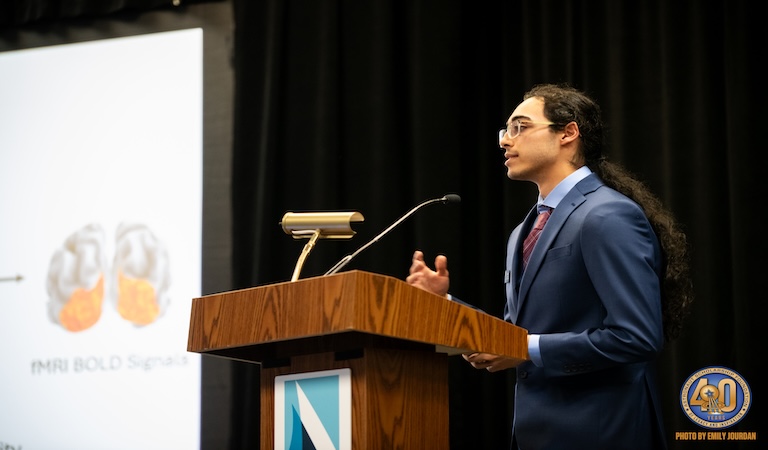Chulani and Dey Named 2024 Astronaut Scholars
October 21, 2024
The Astronaut Scholarship Foundation (ASF) has selected Harvey Mudd College students Alisha Chulani ’25 and Kavi Dey ’26 to join the prestigious 2024 class of Astronaut Scholars. Reserved for exceptional undergraduate students pursuing degrees in science, technology, engineering and math, Astronaut Scholars receive $15,000 in scholarship funding as well as networking and mentoring opportunities with astronauts, other Astronaut Scholar alumni and industry leaders.
ASF awarded its first seven scholarships in 1986. Since then, over 30 Harvey Mudd students have become Astronaut Scholars. This year, 71 undergraduate students from 48 colleges and universities across the U.S. make up the 2024 class of Astronaut Scholars.
Alisha Chulani ’25
Chulani is an engineering major who has done research in the Lab for Autonomous and Intelligent Robotics (LAIR). During her time with LAIR, Chulani developed a test bed to study robot-fish interactions, which was used in a seafloor mapping project in Costa Rica. She worked as an Office of Housing and Residential Life mentor for two years and is now a proctor for North Dorm. Chulani plays on the Claremont-Mudd-Scripps women’s tennis team and has earned NCAA and Intercollegiate Tennis Association championship titles and 2024 Academic All-American honors. She has won the HMC Female Athlete of the Year award twice. After graduation, Chulani will return to Nvidia where she previously interned, conducting tests on the automation framework of graphic processing units.
Kavi Dey ’26
A physics major, Dey worked with Professor Helen Zhou on a brain imaging project in the Multimodal Neuroimaging in Neuropsychiatric Disorders Laboratory at the National University of Singapore. At Harvey Mudd, Dey has worked with visiting professor Gabe Hope on variational deep learning, engineering professor TJ Tsai in the Music Information Retrieval Lab on three-way audio alignment for piano concertos, engineering professor and makerspace Director Matthew Spencer in the Analog Circuit Engineering Lab on ultrasonic beam forming sonar development, and biology professor Matina Donaldson-Matasci in the Bee Lab on zero-shot image classification for pollen species detection. Dey also works in the College’s machine shop as a shop improvement and repair proctor, as a practicum proctor for the Introduction to Engineering Systems course and as a teaching assistant for the Microprocessor-Based Systems: Design and Application course. After graduation, Dey will pursue a doctorate in computer science.

